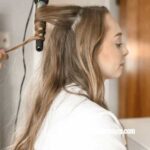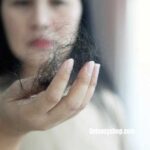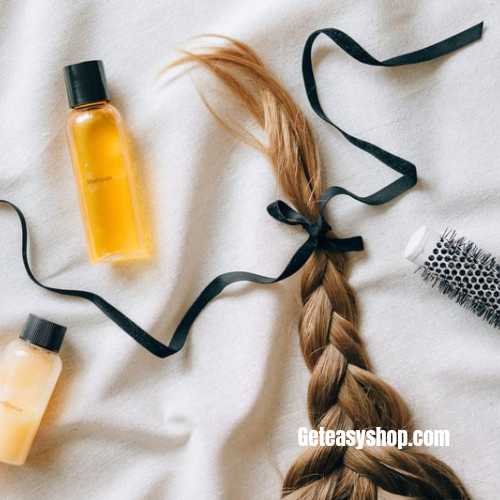 How to Maintain Hair: Tips for Healthy and Beautiful Hair
How to Maintain Hair: Tips for Healthy and Beautiful Hair
Healthy hair health is a reflection of overall good self-care and hygiene. The best way is to bring up all sorts of hair treatment, a healthy diet, and the right lifestyle habits altogether in order to ensure that hair is strong, shiny, and manageable. This article emphasizes how to effectively maintain your hair. Read More:How to make silky hair
1. Adhere to a Suitable Hair Care Regimen
The basis for healthy hair is using a good and well-sustained hair care regimen. The following are what you need to do in this regard:
Right Products: Choose suitable shampoos or conditioners with regards to hair types: oily, dry, straight, or curly. Avoid sulfates and parabens in the products to minimize damage.
Wash Your Hair the Right Way: Hair should not be overwash since it strips hair of its natural oils. Washing up for around 2-3 times in a week would be perfect for most hair types. What a hot water would do are suck the moisture out of your hair, hence the need to use lukewarm water.
Condition Regularly: Apply conditioner after every wash to ensure optimal hydration and smoothness for the hair. The ends receive the greatest concentration since they are generally the driest part of the hair.
Harsh Towel Drying: When drying hair, pat it as opposed to rubbing, as it can cause breakage, and dry yourself with a microfiber towel. Next :How to get shiny hair naturally
Detangle Carefully: Use a wide-tooth comb to detangle wet hair, starting from the ends and working your way up to avoid pulling and breakage.
2. Indulge Your Hair with Balanced Diet Nutrition
Most of the time, the foods you eat will say something about your hair. Eat the following nutrients:
Protein: Hair is primarily protein, keratin. Make sure to take eggs, lean meat, fish, beans, and nuts.
Vitamin and Minerals:
Vitamin A: Available in carrots and sweet potatoes: promotes healthy sebum production onto the scalp.
Vitamin E: Found in almonds and spinach, it improves scalp circulation.
Vitamin D: The hair-stranding health of the follicles is supported by vitamin D.
Iron and zinc strengthen hair follicles and curb hair fall, found in green leafy vegetables, lentils, as well as seafood.
For example, omega-3 fatty acids nourish one’s scalp and assist in the growth of hair; sources include fatty fish, walnuts, and flaxseeds.
It’s important to drink plenty of water to hydrate from within while at the same time keeping the hair and scalp moisturized.

3.Protect your hair from damage
Damage to hair is usually caused by environmental factors and improper practices. Protect your hair by following these steps. Read More:How to handle failure in life
Reduced Heat Styling: Using too much flat iron, curling rod, and blow dryer can weaken the hair. These should be very limited, and a heat protectant must be applied whenever using them.
Chemical Treatment Avoidance: Minimize the use of hair dyes, bleaches, and straightening or perming products, as these strip moisture from the hair and damage the cuticle.
Cover Your Hair: Wearing a hat or scarf when going outside will protect hair by blocking sun, pollution, and dust exposure.
Gentle Accessories: Avoid tight hairstyles, the use of elastic bands, or metal clips that pull on the hair and cause breakage.
4. Scalp Care Practices
Healthy hair starts from a healthy scalp. For scalp maintenance:
Keep It Clean: Wash the scalp thoroughly with every shampoo, removing excess oils, dirt, and built-up products.
Applying oil on the scalp works wonders: A massage with coconut, argan, or castor oil increases circulation through scalp and fortifies hair roots, preventing scalp dryness.
Avoid Itching: Use of medicated shampoo would address dandruff or itchiness but avoid scrubbing as it may damage the scalp.
5. Groom Stress and Lifestyle
Stress and lifestyle habits bring forth the woes for gorgeous hair. To sustain healthy-looking hair:
Reduce Stress: Hair shed, and growth also becomes slow because of stress. Yoga, meditation, and deep-breathing exercises are some relaxation techniques.
Exercise Every day: Improves blood circulation, even to the scalp, thus promoting hair growth.
Sleep Well: Ensure to sleep between 7-8 hours every night to allow body repair and rejuvenation, and hair benefits from this rejuvenation.
Next :Smart watch advantage and disadvantage
6. Regularly Trim and Treat
With routine maintenance, hair is most definitely at its best.
Trim Split Ends: Once every six to eight weeks visit your friendly salon for split end trimming to prevent further damage.
Deep Condition: This should be done on a weekly basis with deeps conditioners or hair masks to bring back moisture and to repair damage.
Treat Scalp: Finally, once in a while, scrub your scalp with a soft scrub for exfoliation that removes buildup and encourages healthy follicles.
7. Natural Remedies for Healthy Hair
Adding natural treatments as one of your regulars can make hair even a little healthier:
Aloe Vera: Apply aloe vera gel to your scalp to relieve irritation and to improve hydration.
Onion Juice: Rich in sulfur, strengthens hair, and brings about hair growth.
Egg Masks: Eggs are really good sources of protein, giving egg masks an ability to strengthen and boost shine.

